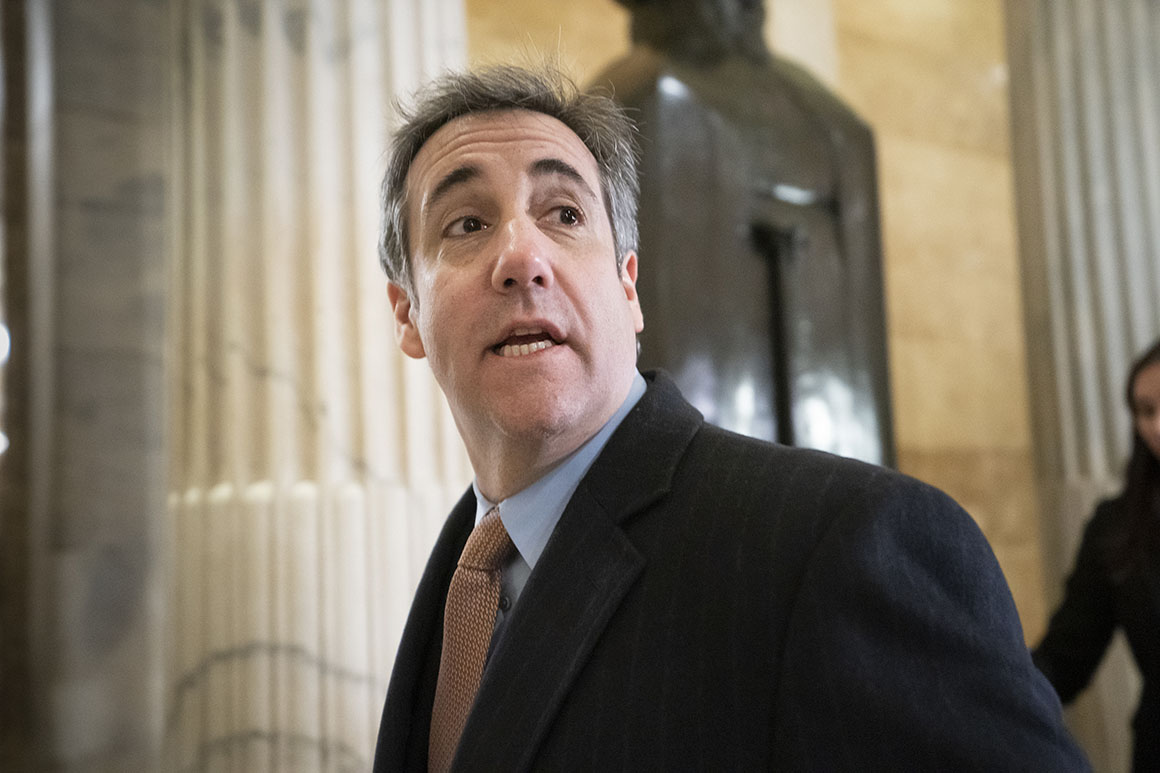
“We are disappointed not only that there was this delay but that no explanation has been offered to him or his family as to the reason for the delay,” Davis said. “We also hope that authorities at the Justice Department and the Bureau of Prisons remain committed to implement the Attorney General’s humane policy during this Covid-19 pandemic crisis, and that no political influences are allowed to interfere that might lead to any further delay.”
One reason for concern in Cohen’s camp was a report last week in the Daily Beast that Trump was “visibly agitated” at the prospect of Cohen’s early release. The president’s lawyers are also threatening legal action against Cohen over a book he is writing that is an inside account of his relationship with Trump.
However, Cohen also appears to be caught up in a broader policy flip-flop by the federal Bureau of Prisons — and perhaps, Justice Department officials — about which of the roughly 170,000 federal inmates are eligible for home confinement because of the threat posed by Covid-19.
In the middle of last month, as the virus spread rapidly through some prisons, hundreds or more inmates were put into a 14-day prerelease quarantine after senior officials at the Bureau of Prisons indicated that standards for home confinement were being relaxed. A requirement that prisoners have served 50 percent of their sentence was being reduced to 25 percent, officials said.
However, a little over a week later, some of those inmates were pulled out of quarantine and told they were not eligible because that decision had been reversed. After reports in POLITICO and elsewhere about the shift, Attorney General William Barr issued a clarification that appeared to give the prisons the authority to drop the 50 percent requirement again.
No official has said publicly that Cohen was affected by those reversals, but he has been in prison just under a year. The Bureau of Prisons shows his release date as Nov. 22, 2021, accounting for so-called good-time credit that shaves a prisoner’s stated sentence. The most recent revision of the home confinement policy suggests Cohen would be eligible for early release in about three weeks, which would be about 18 months before his scheduled release.
Spokespeople for the Bureau of Prisons did not immediately respond to a request for comment Saturday evening. However, a person familiar with Cohen’s case said his release is expected to go forward later this month.
“Cohen’s early release has not been rescinded. He will be eligible when he meets the 18-month threshold later in May,” said the source, who spoke on condition of anonymity.
Cohen, 53, said in a letter to prison officials that he has a history of medical conditions that put him at particular risk of severe illness due to the virus, including “pulmonary embolisms, respiratory deficiencies, cardiac concerns, and high blood pressure.”
Earlier this year, a federal judge tartly dismissed a bid to reduce Cohen’s sentence based on his cooperation with Congress. “Ten months into his prison term, it’s time that Cohen accept the consequences of his criminal convictions for serious crimes that had far reaching institutional harms,” Manhattan-based U.S. District Court Judge William Pauley wrote.
Cohen’s attorneys also cited the danger of coronavirus in that bid, but it was largely an afterthought. Pauley’s ruling came as concern about the illness and its impact on prisons was still building and before several judges issued rulings requiring the release of individual prisoners due to the pandemic.
The Otisville prison in which Cohen is housed is currently reporting no inmate infections, but 10 confirmed cases among staff.
Federal prisons have placed nearly 2,000 inmates on home confinement since late March, when Barr ordered increased use of the practice to protect vulnerable prisoners and limit spread of the virus to inmates and staff by easing crowding.
Nationwide, 1,919 federal prisoners have been confirmed infected with the virus and 37 have died. Infection rates are believed to be considerably higher than the confirmed numbers because testing has been minimal at most prisons, though officials say they are ramping up the availability of tests.
Source: politico.com
See more here: news365.stream






